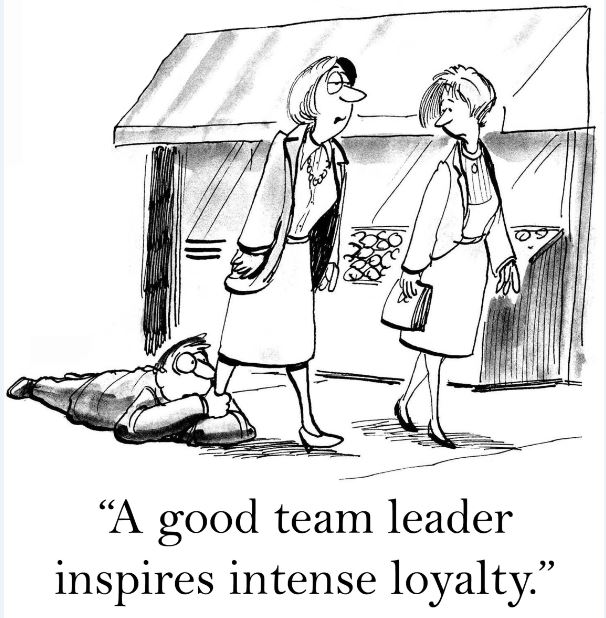It’s March 2019, Women’s History Month! So, I’m going to take you guys back in history to March 2016. It was one of the more critical defining moments in my career. I had just returned back from winning an all-expenses paid trip as a top sales performer. It was two weeks after the trip and I was sitting in front of my baby-boomer female manager turning in my resignation. I knew this conversation was going to be difficult but necessary for my future. I had gained enough knowledge, achieved enough success and had taken many risks and won. It was time to take on the biggest challenge of my career…it was time for me to leave my former employer and lead my own team into business success. I knew she was going to be disappointed but I didn’t expect the conversation to go as sideways as it did. After tears of anger, (yes I’m not kidding, she cried) I was accused of “not being loyal.” Wow! I had to pause when she said it. I’m not being “loyal?” As if the bonus, reward trip and my business status were out of the kindness of the company’s heart and not earned by my work efforts. It’s really simple. I exchanged my talent, skill and ability for compensation. My efforts alone brought this company almost $2M of revenue in the previous 12 month period so there was no charity over here! I had to stress to her that it wasn’t about loyalty. It was about doing what was best for me and my career.
I looked up the definition of loyal– unswerving in allegiance; faithful to a cause, ideal, custom, institution or product; dedicated, devoted, true. Now I see what the problem is. We’ve made ourselves victims of what I call “relationship misappropriation.” We have applied the concepts of dedication and devotion to our business relationships as if we are indebted to these organizations for “giving” us jobs and opportunities. This is the same mindset that keeps women in dead-end personal relationships, to our own emotional detriment. This is the same mindset that keeps us employed at companies and connected to organizations for years, even decades, too long resulting in stunted personal growth. For leaders, it’s the same mindset that causes us to view our subordinates’ progression as an indictment to all of the years of time we’ve spent investing in their development instead of viewing it as the ultimate compliment of our leadership.
Why do we do this? Why do we as women have difficulty seeing our business relationships in their proper context… another rung on the ladder to our life’s ambitions and passions? Is it the residual effects of our historical role as homemakers or our maternal nature that block our ability to separate our emotions and apply strategic thinking to our careers… the type of strategic thinking that our male counterparts don’t think twice about applying and even celebrate each other for it? It is imperative that we as women change our mindsets about loyalty in business, especially women in leadership.

According to a Workforce survey, millennials were three times more likely than non-millennials to change jobs, and 91% don’t expect to stay with their current organizations longer than three years. 80% of respondents agreed that their definition of loyalty in the workplace had changed over time. What is increasingly more common is that employees define loyalty as more of a business exchange. They are hired to perform specific tasks, once they feel they have mastered this role, they will seek out a new opportunity in order to have more responsibility and/or higher income. For today’s workforce, the loyalty mindset no longer involves staying with a company for 20 or 30 years. Rather, it is “I apply skills, talents and abilities with integrity and dedication to high performance of tasks to fulfill the company’s business goals in exchange for compensation.” Whether the next step comes from within the organization or I have to move on to another organization and whether the time is 10 years or 10 months, I have fulfilled my obligation. This is the new “loyal.”
Now that I am in a formal leadership position, I had a chance to recently mentor one of my female millennial subordinates in this same mindset. She is highly talented and as much as I want to keep her on my team and see the fruit of 3 straight years of coaching and mentorship labor stay within my organization, I was determined to be the leader for her that I wanted my former female leader to be for me. I told my subordinate that I would support her decision to leave if that was the direction she needed to go for her career because we do not have an open position for a promotion available and there was no guarantee that one would open up in the time frame she wanted. We both know she is more prepared now than she was before she joined my team to move into the next position and thrive. I look at that progression as a huge success regardless of her decision to stay or leave.
I’m convinced our mindset relative to the concept of loyalty as women in leadership will not only determine the level of health in our teams but also affect the quality and speed of our own career progression. If we’re not intentional with adjusting our views we will thwart our effectiveness and choke our overall success.



Excellent article! Very timely, in that the social environment is very ripe for changing the trajectory for women in leadership roles!
Thank you for the feedback Kim!
Very inspiring article! Even as a male baby boomer I can relate to the erosion of the old “loyal.” The author of this article gives us all a very informative wake up call. Great discussion topic in today’s fast moving world.
Thanks Mitch! I agree! The new “loyal” involves dedication to the quality of performance rather than length of time with a company.